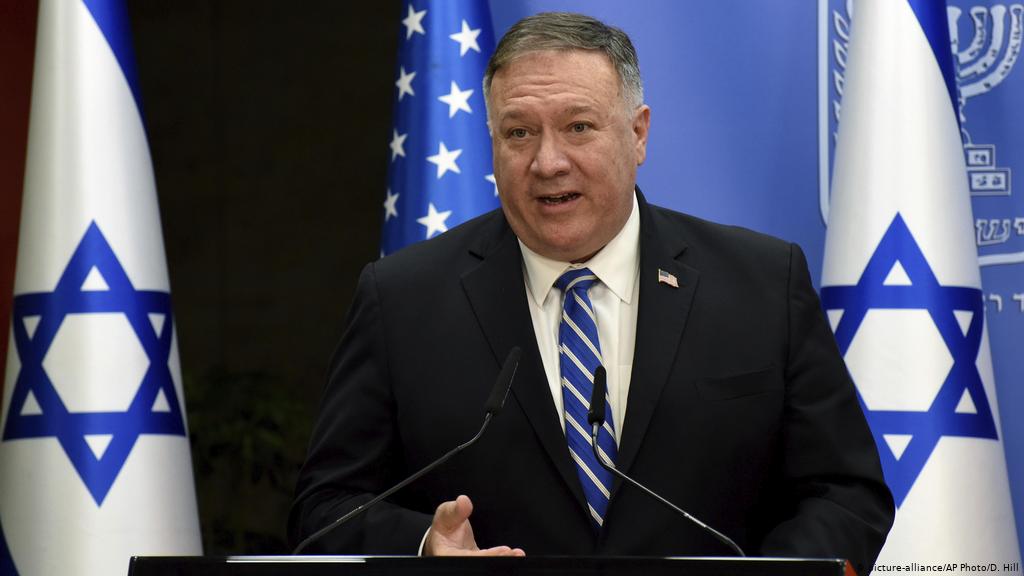News
Religious Blacklist: U.S Misled By Political CAN, Terrorist Groups – Igbo Group

The Igbos in Nigeria Movement (INM) has blamed “political” Christian Association of Nigeria (CAN) and groups that have showed incurable bias and sympathy for terrorist organisations for the inclusion of Nigeria in the United States’ blacklist for religious intolerance.
The group said it came to this conclusion after a thorough review of the circumstances that led to the inclusion of Nigeria.
In a statement signed by its President, Mazi Ifeanyi Igwe, the Igbo group said the U.S. was misled by the political wing of CAN and groups affiliated to terrorism.
The INM noted that the U.S’ report was extracted from NGOs and international news reports that are totally out of tune with the reality in Nigeria.
According to the group, the United States’ blacklist could ultimately incite Christians against their Muslim neighbours in parts of the country that have till date remained peaceful and free of ethno-sectarian crisis
The INM, however, that the United States discards its report listing Nigeria as a country that promotes religious persecution as it is lacking in facts while it is a product of misleading reports by the political wings of supposed religious groups.
Read the full statement below:
The Igbos in Nigeria Movement (INM) taken time to review the inclusion of Nigeria on the Special Watch List for having engaged in or tolerated severe violations of religious freedom by the States Department of the United States in its 2019 Report on International Religious Freedom: Nigeria.
The logical conclusion we arrived at upon our review is the United States was misled by the political wing of the Christian Association of Nigeria (CAN) and groups that have shown incurable bias and sympathy for terrorist organizations.
INM’s decision to make this public clarification derives from the realization that the UN report contained too many fallacies that will do long term damage to harmonious relations among the diverse ethnic nationalities in Nigeria if they are not immediately challenged, exposed as false and rejected in their entirety.
We particularly noted that the US report was largely based on the information it extracted from NGOs and international news reports that are totally out of tune with the reality in Nigeria. The NGOs and the news outlets engaged in a lot of inferences and generalization that magnified incidents in a way that fits into preconceived stereotypes they have for Nigeria.
It must be noted and documented that CAN, which the report relied heavily on for input and subsequent endorsement and marketing of its content, has in recent years metamorphosed into the NGO wing of the opposition People’s Democratic Party (PDP). It has made it a mission to frame whatever the Federal Government of Nigeria is doing from the perspective of the ethnic and sectarian prism, which has served to sow divisions where none existed prior.
INM is concerned that the manner that the US report is promoting the concept of Muslims versus Christians will dangerously incite Christians against their Muslim neighbours in parts of the country that have till date remained peaceful and free of ethno-sectarian crisis. We further fear that the report is validating a suggestion that other ethnic groups should exterminate the Fulani from Nigeria.
We are raising this alarm because of the risks this report poses as something that will incite and inflame passion among the Igbos, first as having large Christian population and secondly as originally being from the south-east of Nigeria, in a manner that will make them take the law into their hands. This has the potential of misleading our people to commit crimes in addition to sparking off tit-for-tat reprisals that will make the whole of Nigeria a sectarian war zone.
INM, therefore, demands that the United States discards its report listing Nigeria as a country that promotes religious persecution as it is lacking in facts while it is a product of misleading reports by the political wings of supposed religious groups. The wild categorization of Nigerians as sharply divided along ethnic and sectarian lines is something that the US also has to desist from doing forthwith because experience has shown us that these concepts of identity war that is projected into the consciousness of Nigerians amount to a kind of subtle war that is meant to make Nigerians kill themselves.




